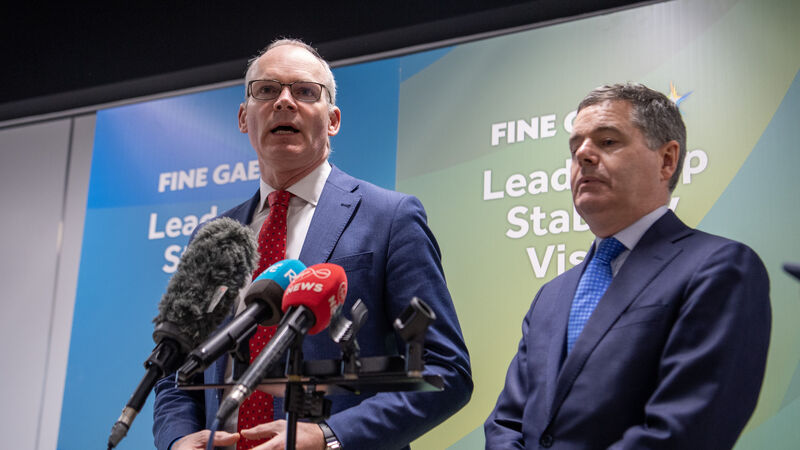Coveney: No plans to expel Russian ambassador

Foreign Affairs Minister Simon Coveney and Finance Minister Pascal Donohoe speaking at the Fine Gael ard fheis at the Technical University of Shannon, Athlone on Saturday. Picture: Dan Linehan
There are no plans to expel the Russian ambassador to Ireland, according to Foreign Affairs Minister Simon Coveney.
Speaking at the Fine Gael ard fheis in Athlone on Saturday morning, Mr Coveney said Ireland would not make any "kneejerk reactions" to Russia's banning of 52 Irish politicians.











